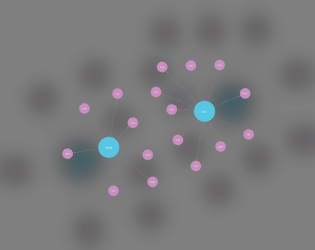This was a pretty interesting piece. I had to play a couple times and watch the video trailer to fully understand how the presentation and overall aesthetic creatively presented Flusser's ideas. Once I understood it, I thought it was a very impressive implementation! Thanks for sharing your creative work.
One small issue: I had some browser issues on Firefox. I had to switch to Chrome to get the game to work (it would freeze after I collected a token). This might be just my version of Firefox, but I thought to flag it anyway in case my experience is not unique.


